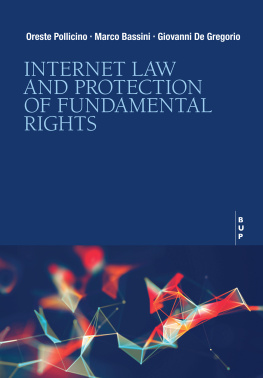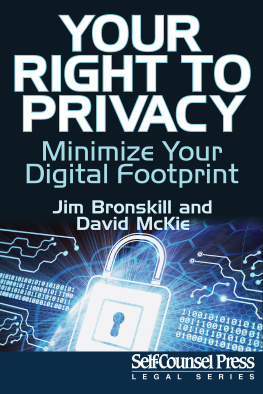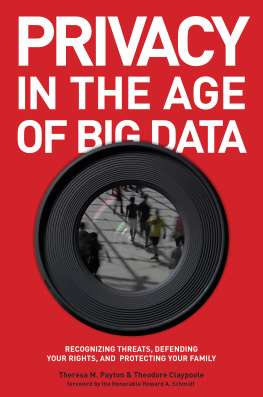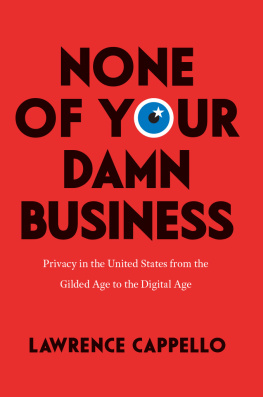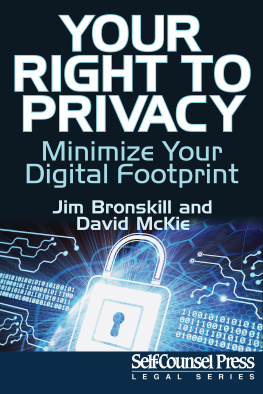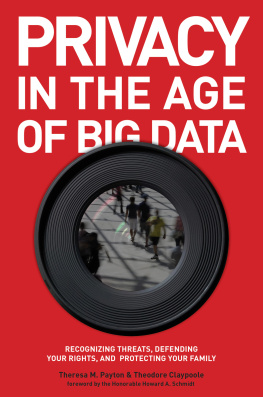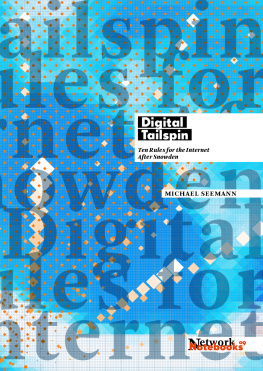RISJ CHALLENGES
CHALLENGES present findings, analysis, and recommendations from Oxfords Reuters Institute for the Study of Journalism. The Institute is dedicated to the rigorous, international comparative study of journalism, in all its forms and on all continents. CHALLENGES muster evidence and research to take forward an important argument, beyond the mere expression of opinions. Each text is carefully reviewed by an editorial committee, drawing where necessary on the advice of leading experts in the relevant fields. CHALLENGES remain, however, the work of authors writing in their individual capacities, not a collective expression of views from the Institute.
EDITORIAL COMMITTEE
Timothy Garton Ash
Ian Hargreaves
David Levy
Geert Linnebank
John Lloyd
Rasmus Kleis Nielsen
James Painter
Alan Rusbridger
Jean Seaton
Katrin Voltmer
The Reuters Institute would like to acknowledge the assistance of Peggy Valcke and Timothy Garton Ash as editorial advisers on behalf of the Institute.

Published in 2016 by
I.B.Tauris & Co. Ltd
London New York
www.ibtauris.com
Copyright 2016 George Brock
The right of George Brock to be identified as the author of this work has been asserted by the author in accordance with the Copyright, Designs and Patents Act 1988.
All rights reserved. Except for brief quotations in a review, this book, or any part thereof, may not be reproduced, stored in or introduced into a retrieval system, or transmitted, in any form or by any means, electronic, mechanical, photocopying, recording or otherwise, without the prior written permission of the publisher.
References to websites were correct at the time of writing.
ISBN: 978 1 78453 592 6
eISBN: 978 1 78672 112 9
ePDF: 978 1 78673 112 8
A full CIP record for this book is available from the British Library
A full CIP record is available from the Library of Congress
Library of Congress Catalog Card Number: available
Typeset by Riverside Publishing Solutions, Salisbury, SP4 6NQ
About the Author
George Brock is Professor of Journalism at City, University of London, where he directed studies in journalism 200914. He is co-leader of a research team at the university investigating search tools for journalism which has received grants from Google in 2015 and 2016 under the companys computational journalism and digital news initiatives. He has worked for the Observer and The Times. At The Times he was Foreign Editor and Managing Editor; he was the papers correspondent in Brussels, 19915. He has been on the board of the World Editors Forum and the International Press Institute. In 2013 he published Out of Print: Newspapers, Journalism and the Business of News in the Digital Age.
Acknowledgements
I am grateful first and foremost to David Levy of the Reuters Institute for encouraging this study and to his colleagues Rasmus Kleis Nielsen and Alex Reid for their scrupulous editorial care and attention. I would also like to thank Peggy Valcke, Timothy Garton Ash, Daniel Wilsher, Judith Townend, and Martin Moore for their helpful comments. None bear any responsibility for faults. My greatest debt, as always, is to my wife Kay.
1
Law, Power, and the Hyperlink
Until recently, the English phrase a right to be forgotten suggested fiction rather than reality. Fans of the Men In Black films think immediately of the neuralyser, the pen-shaped device which, when pointed at someones head and activated, wipes out memory. Or it might bring to mind Winston Smith, the protagonist of George Orwells 1984, whose dreary job as a censor of history involves removing articles no longer thought politically acceptable from back copies of The Times.
In May 2014, arguments erupted over the right to be forgotten in real life. The phrase had been written and spoken before then, but very largely in the specialised world of data protection. The controversy began with a landmark judgment by the European Court of Justice, the highest court in the European Union.
The court decided that the vast, US-based search engine Google was subject to EU data protection law, that it had responsibilities under that law, and that it was required to remove search links when requests from citizens to do so met certain tests. The third of these decisions came instantly to be known as the right to be forgotten. The name is variously used to cover both the de-indexing (or delisting) of internet search results and the deletion of digital material. The phrase is neither new nor, when applied to de-indexing, wholly accurate. But as a slogan it was an instant and resounding success. That success owed a lot to accumulated anxieties about the potential harm which can be caused by some information stored and searchable on the internet.
The judgment in the case formally known as C-131/12 Google Spain SL and Google Inc v. AEPD and Mario Costeja Gonzalez (and usually known as Google Spain) was a shock.people knew much about data protection law and especially about this aspect of it.
The right to be forgotten is only one part of data protection but its workings deserve to be much better known and debated. The question of whether the law should require personal information to be delisted by search engines (or deleted altogether) sits at the new, shifting, and disputed border between free speech and privacy in the online world. Battles over privacy have now become struggles over digital information rights. A new dispensation between freedom of information and rights to protect privacy and reputation is being hammered out in courts and political systems across the world. The search for a way to manage this collision of rights did not start with the Google Spain case, but that judgment tilted, polarised and fired up the debate.
Digital technology, by making possible vastly greater creation, storage, and search of information, poses new questions about free speech, privacy, and rights of rectification. Timeless values need to be applied in new contexts. This study examines the origins of, and fallout from, Google Spain and questions whether the balance is being struck in the right place. Any intervention at the junction of journalism, law, and technology should be closely examined and monitored. Journalism also plays a role in public memory. Exactly how much do we want to be able to recall? How do we determine what that is?
Free speech and privacy have been colliding for centuries. Rights which clash often cannot be reconciled; they can only be balanced by reasoning from the facts of a case. The debate over the right to be forgotten opens a window on our attempts to adapt long-established values and principles to the online world. It poses questions for law and democracy raised by globalisation and instant communication. The issue is not only the competition of free speech and privacy but of discovery, historical memory, forgetting, the integrity of the public record, the right to know, and forgiveness. We are gradually assembling the conventions, software code and laws of a new public sphere.
The basic questions asked in the Google Spain case were: can Googles search algorithm cause harm? If so, what should be done? Much of the immediate reaction to the case was overblown: it was not legal authority for the neuralyser or real-life Winston Smiths. The fact that people overreacted to the judgment does not mean that the European Court issued a good decision, nor does it mean that there are no future risks to free speech built into it. The decision in Google Spain will come, I would argue, to be seen as one of the poorest in the courts history. It makes the best balance between both freedom of speech and of knowledge fundamental to good journalism and the protection of privacy harder to achieve.


